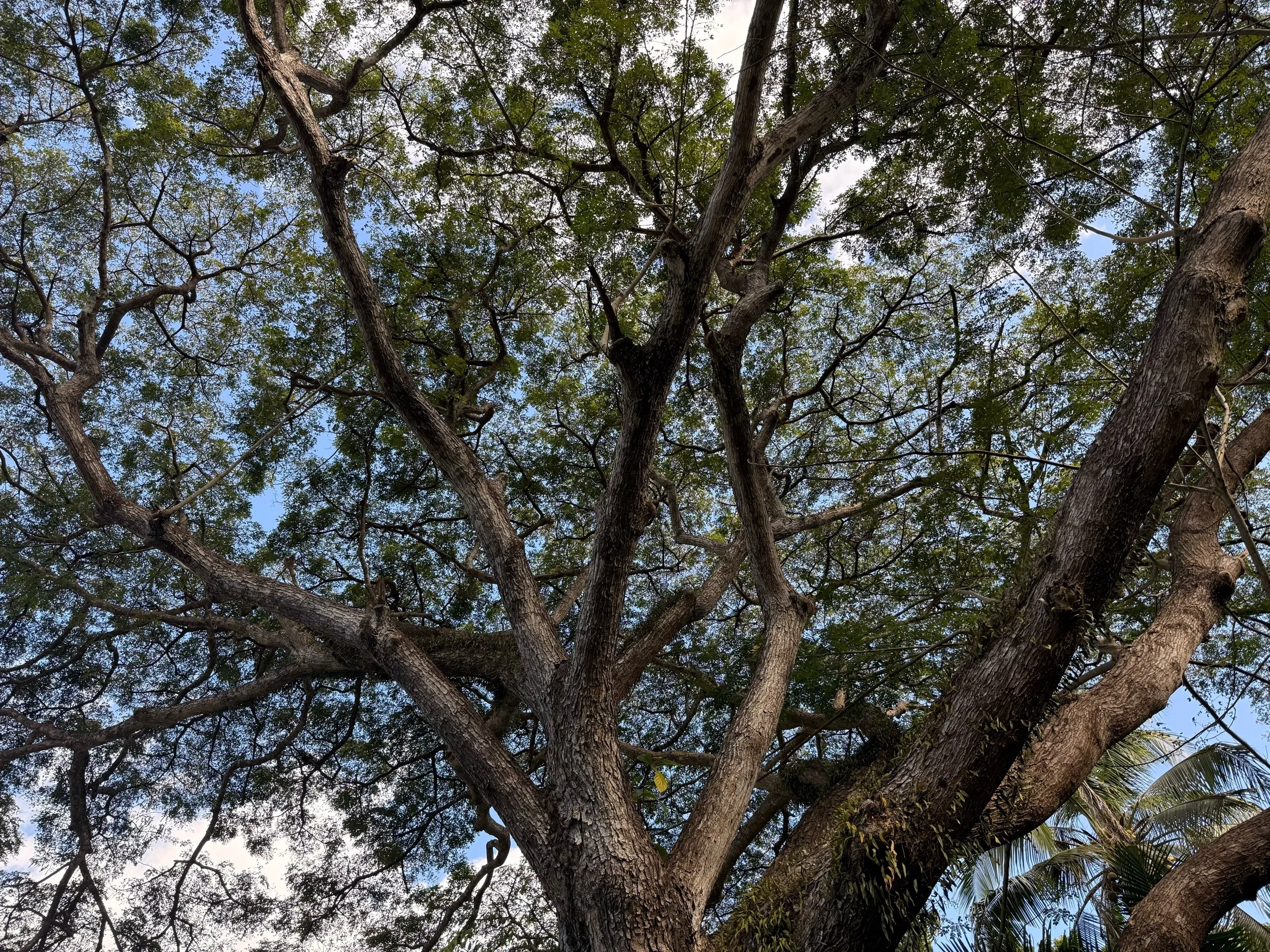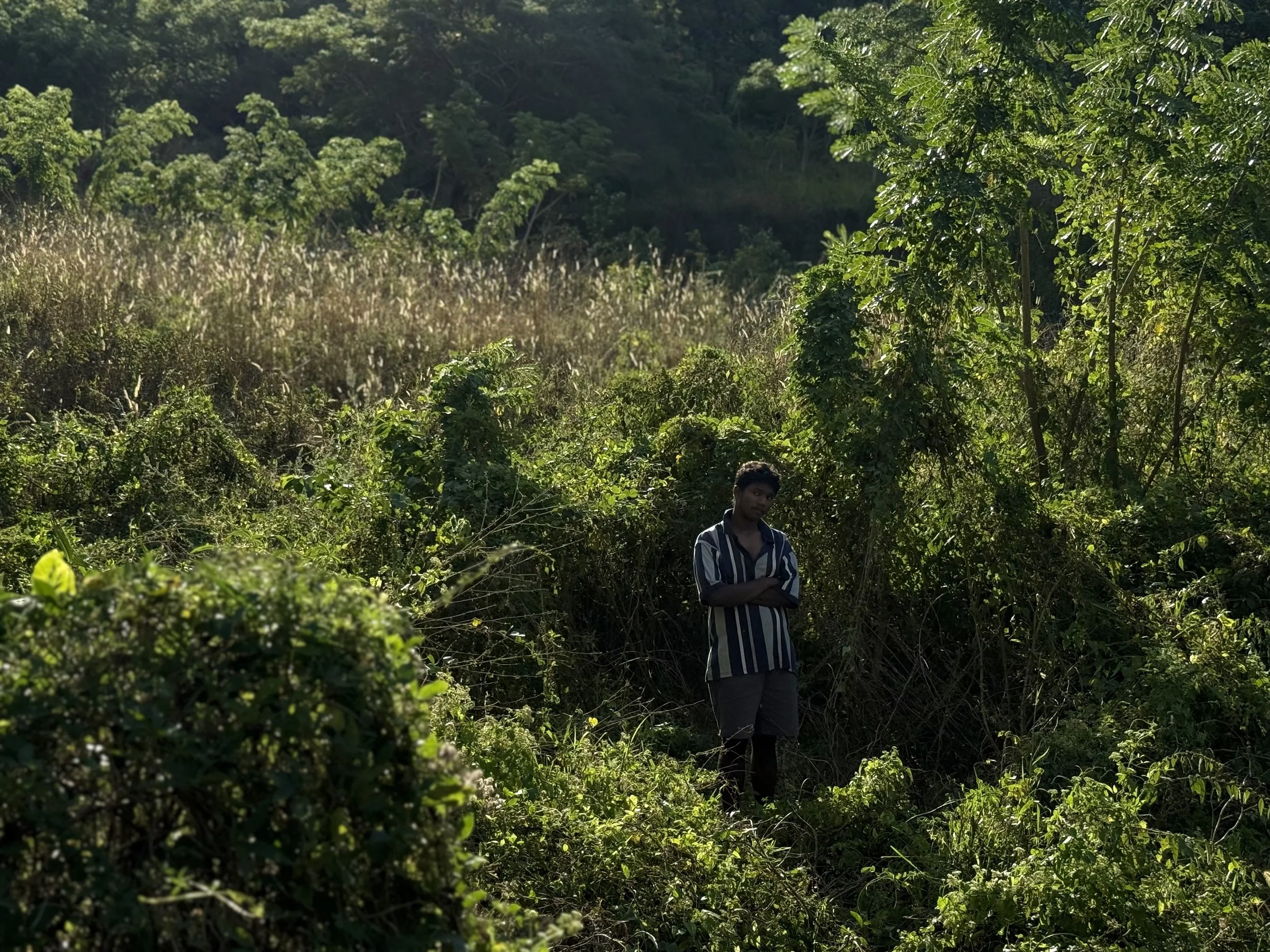Our Story
Chuck began his passion for farming by studying Agricultural Engineering at the University of Southern Queensland. From the start, he felt called to make a difference in the developing world, all while deepening his faith. That journey led him to pursue his degree with purpose and heart. During those formative years, he also met Susan Tutt—the woman who would become his lifelong partner, both in love and in life.
After university, Chuck started work full time in an agricultural engineering company. Rather than simply chasing financial success, Chuck felt a strong desire to make a meaningful impact with his life. This curiosity led him to explore new possibilities—and that’s when the real adventure began!
In 1992, Chuck and Sue were sent to Fiji by their home church through a collective of businesspeople. The goal was to support local villagers in growing and selling seaweed as a way to generate income. The collective had committed to purchasing the seaweed and marketing it overseas, but early efforts were met with challenges. Seaweed was brought in only sporadically, and the supply remained inconsistent. Chuck’s role was to listen, observe, and work alongside the community to understand the underlying dynamics. He soon realized that many Fijians typically sold produce only when there was an immediate financial need—such as a wedding or funeral. This flexible, need-based approach to selling made sense culturally but posed challenges for building a steady supply for export.
In response, Chuck and the team explored ways to establish a more consistent production base. They leased four acres of undersea farm and planted seaweed, aiming to supplement and stabilize supply. For a while, it seemed promising. But just before the first harvest, Cyclone Kina swept through and destroyed the crop. Only five months into their time in Fiji, the project faced a major setback. With interest waning among the investors back home, Chuck and Sue were encouraged to return.
Not ready to give up on their time in Fiji, Chuck and Sue chose to stay and see what new doors might open. Around that time, the Fijian government was experiencing a shortage of teachers and welcomed applicants with university degrees. Eager to contribute in a meaningful and practical way, Chuck applied and was soon placed at a rural school, where he taught Biology and Mathematics. It was a season of growth for him, too—as he quickly discovered that one of the best ways to learn something deeply is to teach it to others.
In 1994, Chuck and Sue moved to Nadogo Secondary School, where Chuck would go on to teach for six years. The school included a boarding hostel where students were sustained on a very limited diet and living conditions on campus were equally tough. Chuck and Sue settled into a small, simple house with an unreliable water supply, a pit toilet in disrepair, and very little income to spare. Rather than be discouraged, they saw these challenges as opportunities to learn and adapt. Drawing inspiration from a set of World Vision fold-out brochures, they began experimenting with appropriate, low-cost technologies. First came a ferro-cement water tank to collect rainwater, followed by an improved pit toilet and an adobe drum oven. As they continued to respond to daily needs, they also built a basic water filter and a hand pump designed for use with a well—solutions that blended ingenuity with practicality in their environment.
With some of their own living challenges addressed, Chuck and Sue turned their attention to the school hostel. With permission, they began a few small projects aimed at improving the students’ nutrition. Working alongside the students, they learned how to raise laying hens, plant rice, and even stock a hand-dug pond with tilapia. From there, they encouraged the school to invest in citrus trees and introduced a couple of beehives—small steps toward a more sustainable and nourishing environment.
Chuck, now deeply inspired by the possibilities of appropriate technology, began experimenting further—sometimes with the help of local builders on small side projects. His enthusiasm grew into opportunities to share what he had learned, and he was invited to teach in other villages throughout Fiji, and even once in Papua New Guinea. Meanwhile, Sue took on the library and lovingly started a preschool for the children of the teachers.
It was during their years at Nadogo that Chuck and Sue’s lives changed in the most beautiful way—they adopted their daughter, Litia.
During this time, Chuck realized his passions had shifted from teaching school lessons to life skills that would help students not only survive but thrive in their environment. He wanted to teach agriculture, construction, and small business skills with a base of Chrisitan principles. In 1999, he finished teaching school and looked for a way to bring this dream to life.
In 2001, after spending a year living and reconnecting with family in Australia, Chuck and Sue returned to Fiji with a new sense of purpose. They joined forces with Marion Male to help establish the Northern Christian Training Centre (NCTC)—a Bible-based vocational training centre in the north. With limited resources, Chuck was tasked with developing the facilities from the ground up. It became a season of learning and hands-on creativity, as he explored a variety of building methods and materials, adapting as needed to fit the local context. To help support the students’ nutrition, they also cultivated pineapples and raised chickens, ducks, and pigs on the side. At the heart of it all was a hope: that each student would leave with the skills and confidence to one day launch a small business and take meaningful steps forward in life. Along the way, Chuck taught himself how to draw house plans and construct composting toilets—practical skills with real-world value.
Chuck and Sue poured six full years into NCTC—Chuck leading the practical training, Sue managing the finances, and Marion guiding the spiritual foundation. It was also here that Chuck and Sue’s family grew once more with the adoption of their son, Mitchell. At the end of 2006, the family relocated to another part of Fiji, where they helped establish a second small training centre. Both centres continue to operate to this day—each evolving in its own way, but still rooted in the same spirit of faith, learning, and community.
Since 2006, a verse from Psalm 37 had quietly taken root in Chuck and Sue’s hearts: “Dwell in the land, and feed on His faithfulness.” The words stayed with them, gently guiding their reflections and decisions. Over time, Chuck began to sense that it was more than just a comforting verse—it was an invitation to live it out. Later that year, with the support of two close friends, Chuck and Sue were able to purchase a piece of land in Tabia, Fiji. For Chuck, this was more than a place to live—it was a calling to settle his family into the land, to live simply and sustainably from what it could provide, and to care for it in a way that honored God. It was also an opportunity to put into practice the values they had spent years teaching: a life rooted in faith, stewardship, and local resilience—without relying on outside financial support.
On March 20th, 2009, Chuck, Sue, and their family moved onto the property and began a new chapter of life. They named it Cegu Valley Farm—“Cegu” (pronounced Thengoo) meaning Peace or Rest in Fijian—reflecting their hope for what the land would become, not just for themselves, but for others who might learn from it.


